London-based singer/songwriter Finn Doherty is well-versed in many modern-day facets of the entertainment business, but his strongest suit lies in his musical ability. His EP ‘if you’re bored of this city’ is a must-listen conceptual project about queer love, being overcome by his demons, and, ultimately, self-acceptance.
‘if you’re bored of this city’ – Finn Doherty
Earlier this year, London-based singer/songwriter Finn Doherty dropped his EP if you’re bored of this city.
The project, at seven songs and 19 minutes long, is an instantly engaging, visceral concept project with, for many of the tunes, accompanying visuals and live performances. At the time of writing, Doherty sits at 746 monthly listeners on Spotify. “Call it Off” and “Drop My Guard,” arguably the two best songs of the project, have not cracked 5,000 streams.
Doherty, a compelling vocalist, visual artist, curator, and activist, has done the work and found his niche, but has not yet reached the full scope of his would-be audience. if you’re bored of this city, a record deserving of that audience, is out now.
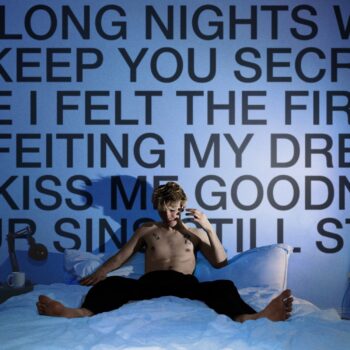
In an interview with Young Norfolk Arts in September 2017, Doherty, at 15 years old, spoke about Heritage & Parenting, his debut EP, which had dropped a few months prior. Seven years later, that project is nowhere to be found, and Doherty marketed if you’re bored of this city as his debut EP.
“That project did come out, and it did exist,” he tells Atwood Magazine. “Those were the very early days of me deciding that music was something that I wanted to do, and do seriously. Then, a pandemic paired with a place I’d ended up in my life made me reevaluate what I was doing.”
Doherty believed he was set on working as a songwriter, writing songs for and with other artists, but once live gigs returned in 2021-22, he shifted his mindset. A song called “You’re Still In My Dreams” was the tipping point, and he began anew.
“I thought, ‘Ok, there’s something here. I could build a show, a setlist, around this song,’” he explains. “After workshopping that show for about a year, I realized I had a handful of songs that all spoke of the same experience I’d had previously.”
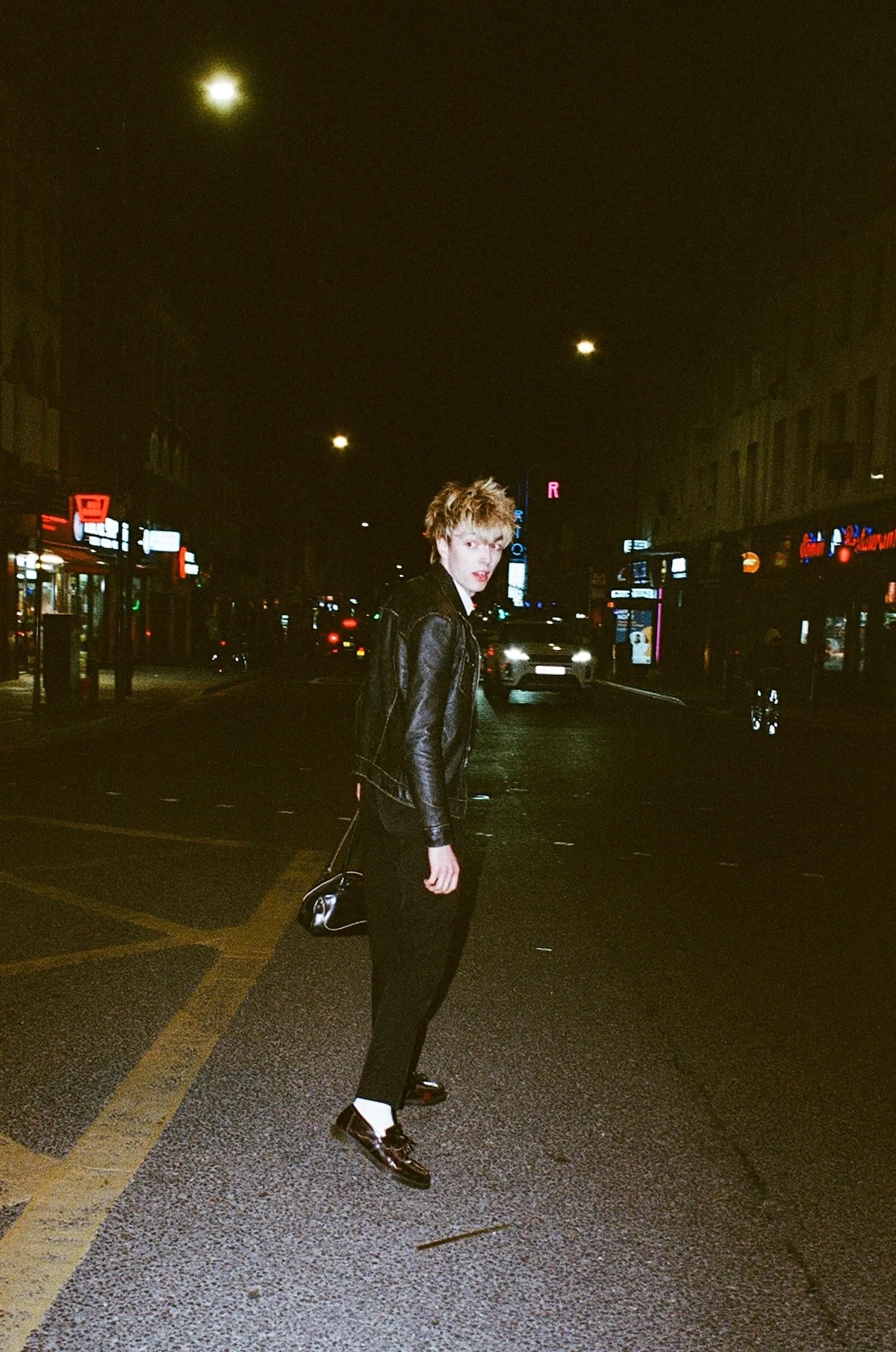
By fleshing out the narrative of those songs, Doherty constructed the project that would become if you’re bored of this city.
“So much had changed in my life, and in the world, since the work I’d made all those years ago,” he continues. “I even considered creating an artist name, and I decided against that. But, I think that’s why this is the ‘debut EP.’ This is the proper beginning.”
Doherty’s sound, a clearly defined queer pop, is reminiscent of, though more cohesive than, Blue Neighborhood-era Troye Sivan, with other, more alternative-leaning, influences are also present.
“What I really tried to do with this project was that I wanted the instrumentals to reflect the sounds I was hearing at the time of the experience,” he shares. “It was a lot of Billie Eilish’s first album, then you get these big vocal production and vocoder moments that I was hearing a lot of in Chance The Rapper. When it goes back to day one influences, I was a massive Green Day fan. That clicked for me, like, ‘Oh, I’ve ended up making a concept record like when I was 13 and my favorite album was American Idiot and that was a concept record.”
Dark red, a color commonly used to represent power, bloodshed, or sensuality, can be found across Doherty’s visuals, though his interpretations lean more towards feelings of love and danger.
“This EP is so much of the conflict between those two emotions, but ultimately… I took influence from the colors of the city at night,” he says. “The orange hue of streetlights and light pollution… SoHo at night, red neon signs outside of clubs and bars. A lot of old traditional London imagery.”
The use of London as the backdrop, with its rich queer history, including the emergence of the infamous Molly Houses in the 1700s, the beginning of the contemporary club scene in the 1930’s, and London’s first gay pride march on 1 July, 1972, adds to the lore of the performances.
“I think this EP is inspired by such a universal queer experience, which is falling in love with someone who is never going to love you back, because of their own sexual orientation,” he says. “It’s about self-destruction… about being obsessed and infatuated with someone. All the late-night club visuals, and the darker tones, that’s where this all came from.”
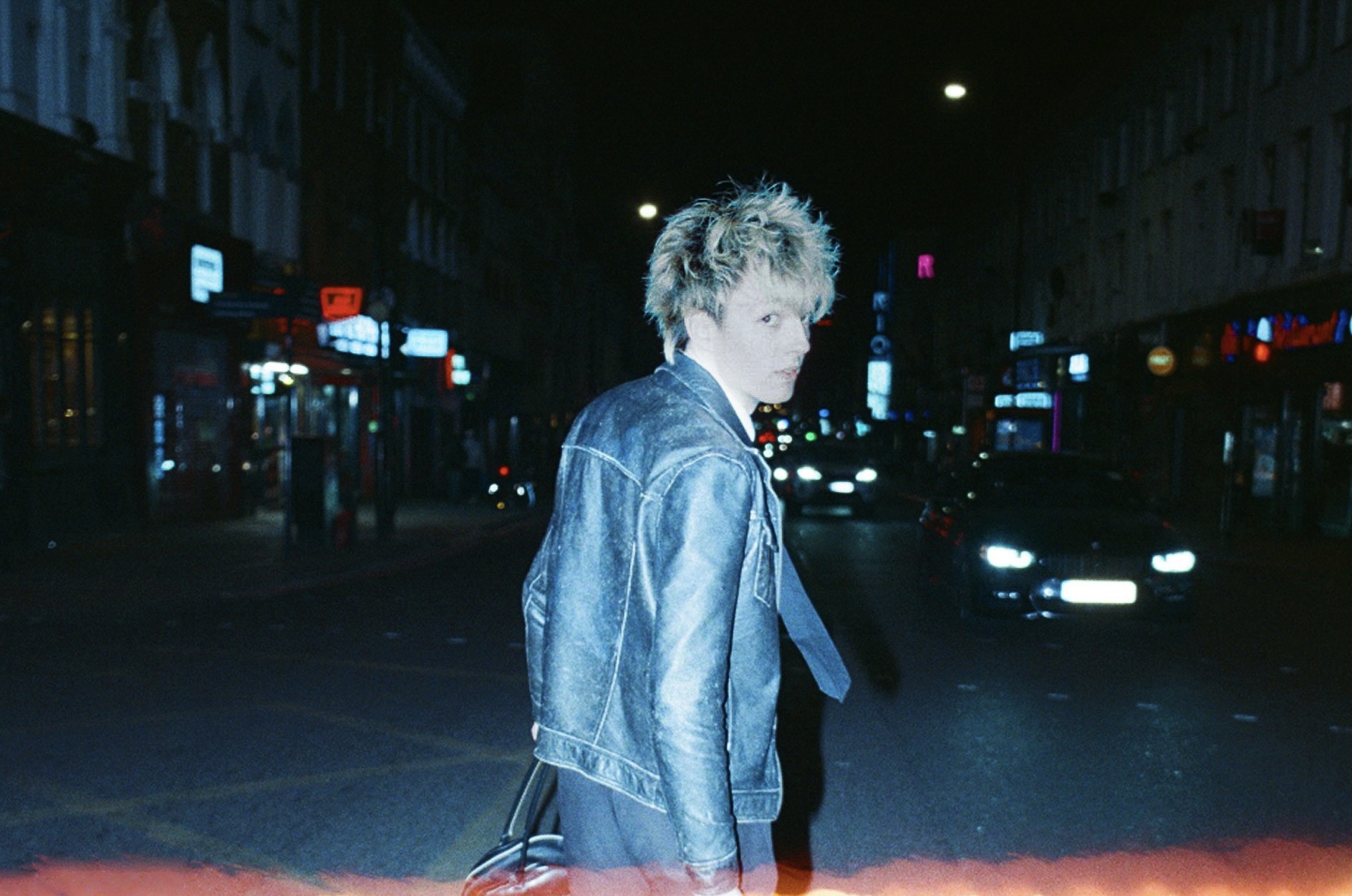
Stimulating visuals of Doherty presented as a physically objectified guinea pig in the “Drop My Guard” video, and as a substance-induced zombie in the visual for “Figure It Out,” highlight this idea of self-destruction.
“We’re at a super progressive point right now… but there are still a lot of links between drug abuse and queer people, and using that as a coping mechanism,” he observes. “Whether that’s because they’re repressed, or because they’re unable to deal with the realities of the situation. That was something I experienced. At that point in my life, I wasn’t immersing myself in a queer scene because I was too afraid to be seen as a part of it.”
External factors aside, the songs themselves fully deliver. “Call It Off,” beginning with Doherty deep in his bass register, is a bait-and-switch from funky neo-soul to a more gospel-tinged light electronica:
6 a.m., it’s northwest London,
and our sins still stain my room
You make my city of dreams
the city of nightmares,
and maybe I kinda like that
After contemplating the matter and weighing his options, he questions his own involvement in the scenario:
I’m never really ready to say goodbye
Won’t you tell me what would happen
if I call it off tonight
If I call it off, call it off
The line, “call it off,” repeats incessantly following the second chorus, but with no indication of what happens next for Doherty and his love affair. An impromptu tag section of muffled vocalizing and thumping straight from the recording session, closes out the song, adding to the variability of the unclear ending.
Other highlights include the crunchy, manic “KMU,” a futuristic, theatrical approach on the skillfully layered “Figure It Out,” and Doherty’s proficient use of his head mix on the formidable “Drop My Guard,” as he is surrounded by whirring synths and skittering high-hats.
I think I might be a little crazy,
cause nothin you do ever seems to phase me, no
Well, maybe you could be the one to save me
You’re the only one that makes me drop my guard
“Drop My Guard,” at just 2:17, concludes just as Doherty truly locks the listener in with an grand bolster of a second chorus. “It was always supposed to feel like the first time you catch sight of someone,” he says. “It’s really a song about desire, and obsession, and I wanted to frame it in this kind of frantic way.”
He deviates from this idea in the live performance video, a commentary on modern dating, in which he jumps from table to table of potential suitors vying for his attention. He craves monogamy, while exhibiting anything but.
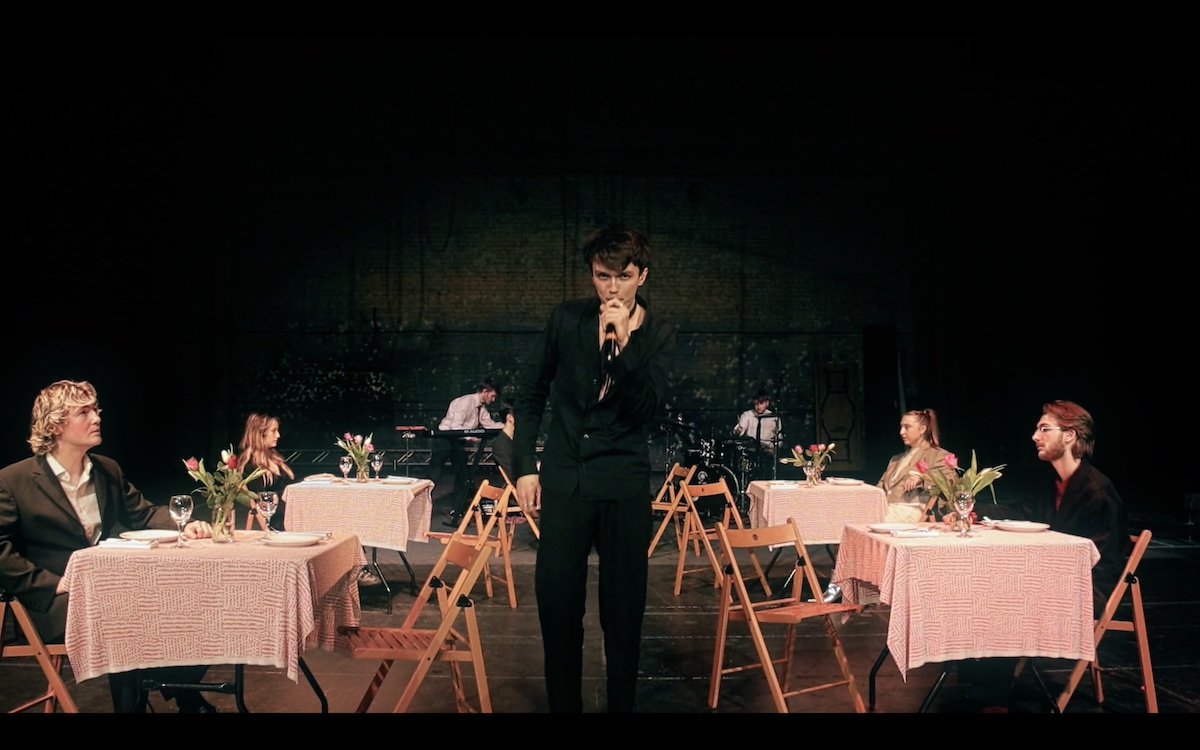
The aesthetics and visuals for this project display a version of Doherty willing to allow his body to be displayed and manipulated for artistic purposes.
Though outside of his art is the reality of him working to relieve himself of daily struggles such as the ups and downs of mental health, and body image.
“Some days can feel like you’re on top of the world, like you’re killing it, and then you’ll just randomly have a day where you feel lost,” he says. “Ultimately, I feel very confident now… but I still have these days where I really overanalyze myself in the way that I’m acting, or the things that I say.”
The strenuous video for “Figure It Out,” as well as the live performance of “KMU” – in which he shamelessly runs around London – are both seen as milestone bits of performance for Doherty. “In terms of the videos and dancing and being comfortable in my skin, performing has always been such a massive relief, and I think there’s a certain element of it where I feel like I have been playing a character a lot of the time. Sometimes, that can act as a manifestation of who I become afterwards. Through a lot of this project, I was reflecting on someone that I was. I was very nervous, perceptible to someone else’s influence, young, wide-eyed, and didn’t know what was going on… didn’t know myself.”
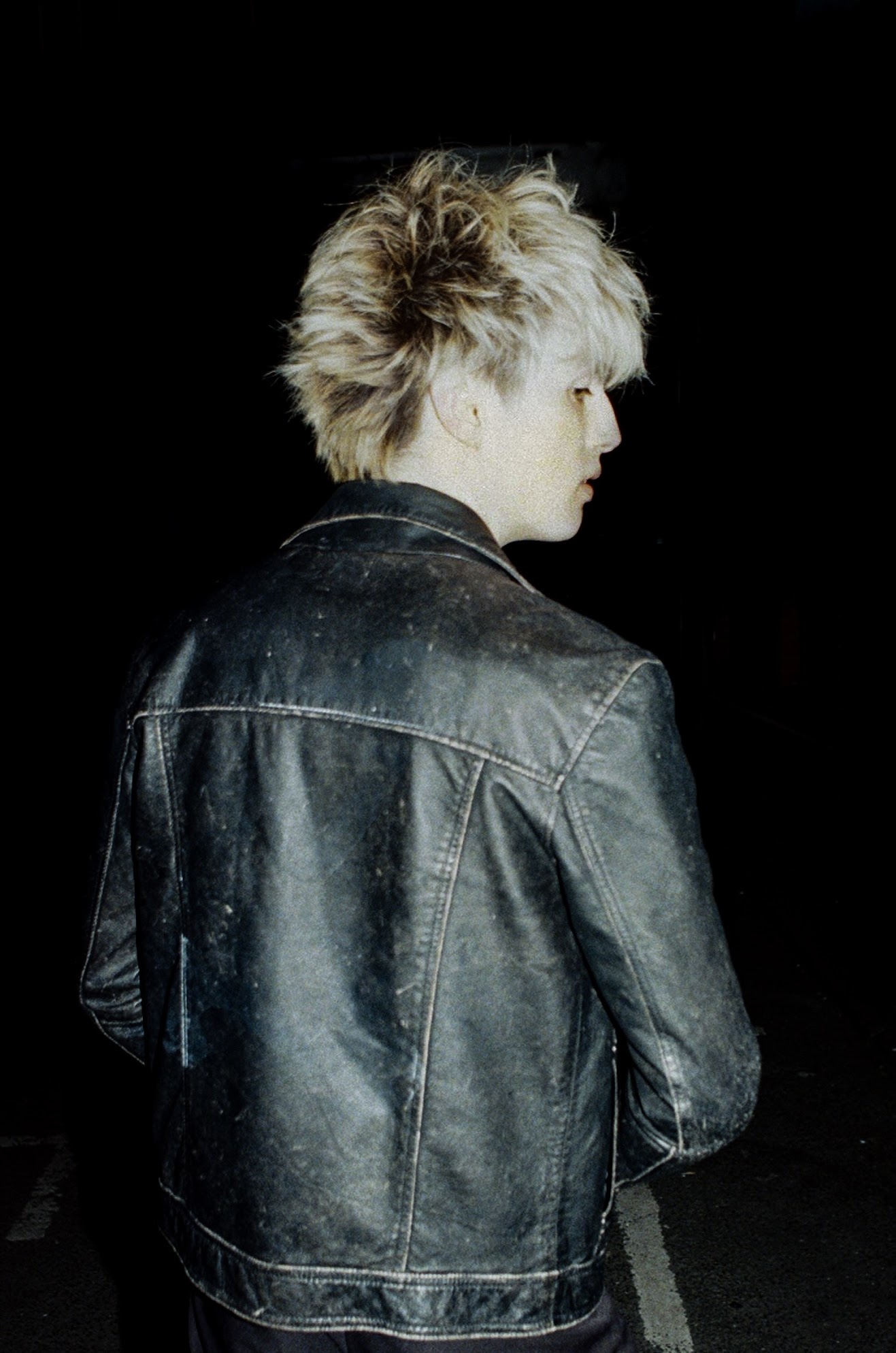
These days, Finn Doherty feels like he knows himself more intimately.
Nearly three months following the release of the EP, Doherty has had time to properly reflect.
“The experience of creating and releasing this EP… creating a space for it all to exist and presenting that to the world, has been incredible therapeutic,” he says. “It kind of is packaged as being about this character, that character is me… is me from a past life. So now, when I think about that experience, I feel very at peace with it.”
— —
:: stream/purchase if you’re bored of this city here ::
:: connect with Finn Doherty here ::
— — — —

Connect to Finn Doherty on
Facebook, Twitter, TikTok, Instagram
Discover new music on Atwood Magazine
© Alec Jafrato 🖼 © Austin Fischer
:: Stream Finn Doherty ::

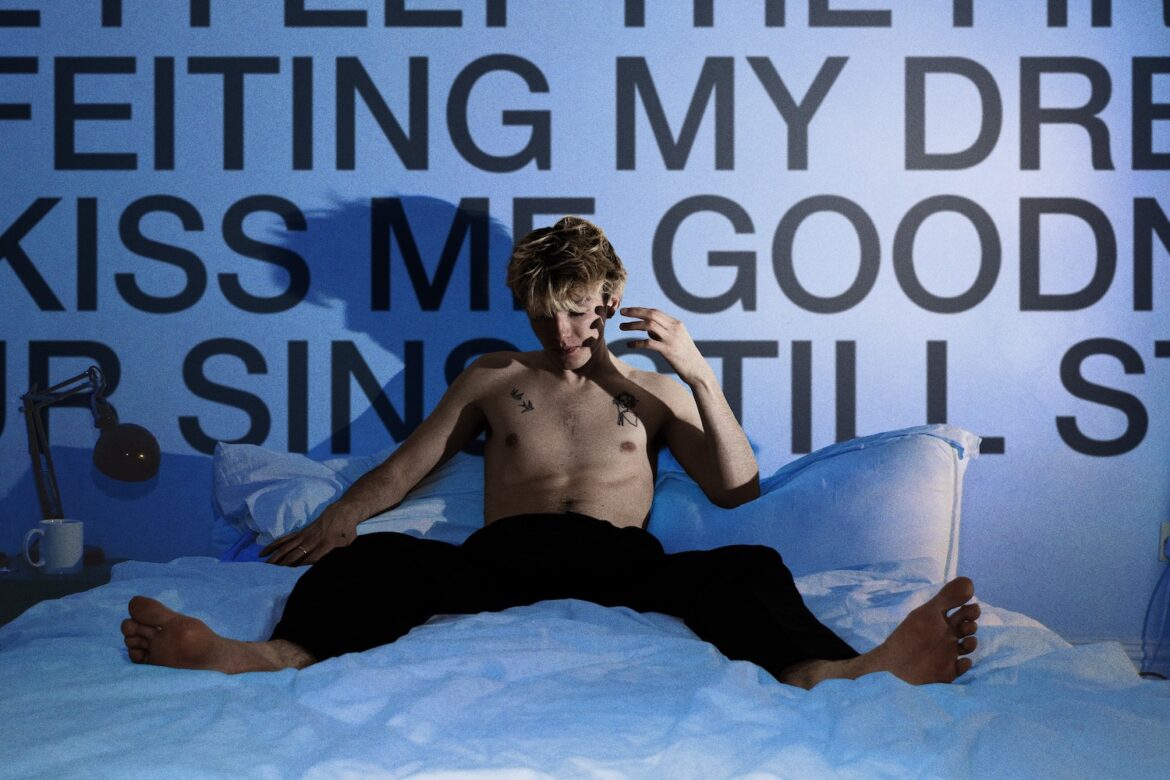
 © Alec Jafrato
🖼 © Austin Fischer
© Alec Jafrato
🖼 © Austin Fischer





